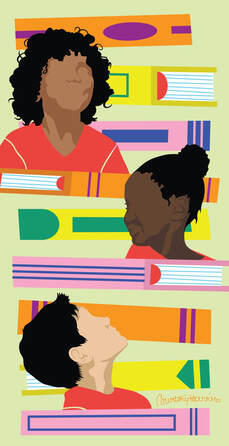|
Anti-Bias and Anti-racism (ABAR) is an active and ongoing process in which we promote a community where all human differences are supported, including race, ethnicity, culture, religion, sexual orientation, gender, language, ability, socioeconomic status, and many other areas of social difference. It requires us to challenge our learned biases and choose a lens through which we believe all people are equal, seek to understand differences, and value and respect all people regardless of their backgrounds.
Everyone has implicit biases – associations we have made through our learned and lived experiences. Through ABAR work, we seek to recognize and challenge our own biases and those of society and the institutions in which we participate. According to psychologist Dr. Mahzarin R. Banaji, “Implicit biases come from culture. I think of them as the thumbprint of the culture in our minds. Human beings have the ability to learn to associate two things together very quickly—that is innate. What we teach ourselves, what we choose to associate is up to us.” Our work as the TMS ABAR Committee is to actively create a school community that is anti-biased and anti-racist through reviewing and suggesting classroom materials, seeking opportunities for staff training, as well as equipping caregivers with tools and resources to support the children in their lives to also learn to challenge biases and racism. |
|
At The Montessori School we continually ask ourselves what we can be doing to provide a space where children feel affirmed and supported in their identities each and every day of the year. Our school is continually working on year-round policies and practices that are responsive, accepting, and supportive. We know that classroom staff play an important role in supporting and advocating for LGBTQ+ students so that they can learn and explore in a safe classroom community- particularly at the Elementary level. Throughout the school year, the Elementary team works to ensure the students are exposed to LGBTQ+ joy while also acknowledging the work that still needs to be done (in our greater community and our classroom). Learning for Justice has a variety of resources we use to ensure we are creating that environment. From their Best Practices Guide: “An LGBTQ+ inclusive school benefits all students. Seeing LGBTQ+ identities valued in the classroom, in the curriculum and in day-to-day interactions inspires empathy, understanding and respect. The overall school climate is safer. The lessons on history, literature and culture are more complete.”
One of our favorite sections in this guide is called Know Your Students’ Rights!
At The Montessori School we recognize that:
- No matter what sex a student was assigned at birth, they have a right to express their gender as they wish.
- Students have a right to be free from discrimination or harassment based on religious views. *The right to freedom from religious persecution extends to making sure students can’t be denied equal access to safety and opportunity due to someone else’s religious beliefs.
- Students have a right to express LGBTQ+ pride.
- Students have a right to form GSAs.
- Students have a right to access facilities and opportunities that match their gender identity.
- Students have a right to an education free from harassment and to have harassment treated seriously.
- LGBTQ+ students have a right to privacy and, thus, a right not to be “outed.”
- LGBTQ+ students have a right to be “out.”
One of our favorite sections in this guide is called Know Your Students’ Rights!
At The Montessori School we recognize that:
- No matter what sex a student was assigned at birth, they have a right to express their gender as they wish.
- Students have a right to be free from discrimination or harassment based on religious views. *The right to freedom from religious persecution extends to making sure students can’t be denied equal access to safety and opportunity due to someone else’s religious beliefs.
- Students have a right to express LGBTQ+ pride.
- Students have a right to form GSAs.
- Students have a right to access facilities and opportunities that match their gender identity.
- Students have a right to an education free from harassment and to have harassment treated seriously.
- LGBTQ+ students have a right to privacy and, thus, a right not to be “outed.”
- LGBTQ+ students have a right to be “out.”
